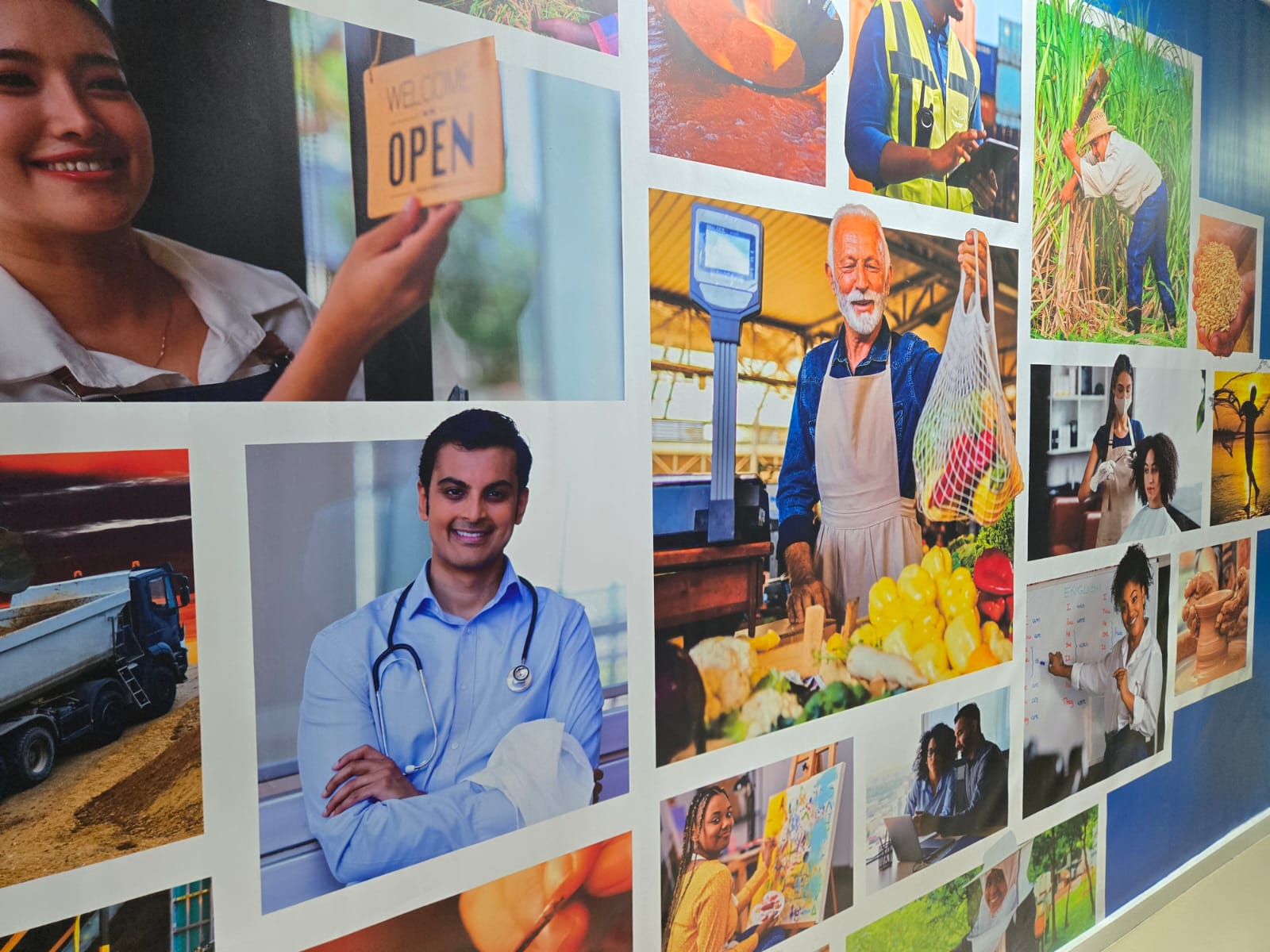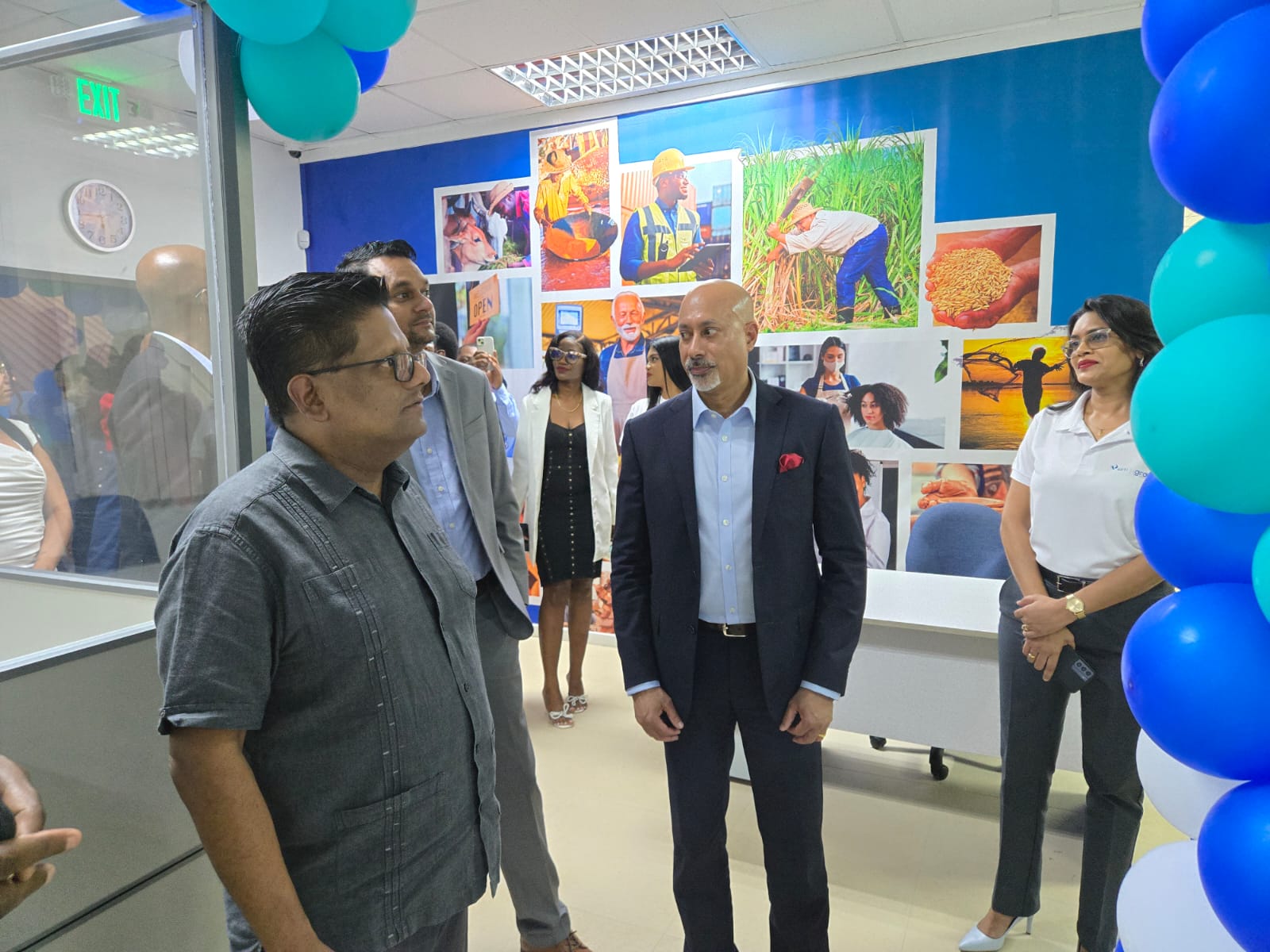In a bold move to foster entrepreneurship and strengthen the economy of Guyana, the Guyana Bank for Trade and Industry (GBTI) has launched GBTI GROW, a specialized division aimed at empowering small and medium-sized businesses (SMBs).
The grand opening event, which took place at Mon Repos, East Coast Demerara on Friday, was graced by the distinguished presence of bank executives and Finance Minister Dr. Ashni Singh.
GBTI GROW is more than just a financial service provider. It is a strategic initiative designed to support Guyana’s entrepreneurs by offering tailored financial solutions that meet the diverse needs of SMBs.

From agricultural ventures to manufacturing and retail, GBTI GROW promises to be a comprehensive resource that nurtures growth, innovation, and sustainability within local businesses.
GBTI GROW will cater to businesses in several key sectors, providing them with the necessary financial tools and advisory support to scale and prosper. The four primary areas of focus include:
- Retail/Wholesale Trading and Distribution – Supporting businesses involved in the sale and distribution of goods.
- Agriculture – Offering financing for crop farming, livestock, forestry, shrimp farming, fishing, poultry, and other agricultural activities.
- Manufacturing – Financing for sectors such as timber and sawmilling, food and beverages, clothing, furniture, art and craft, cottage industries, and more.
- Commercial Vehicles – Loans for purchasing trucks, lorries, and other commercial vehicles essential for business operations.
In addition to sector-specific financing, GBTI GROW will offer an array of tailored financial products and services, including:
- Specialized Loan Programs: These loans are designed to support the specific needs of SMBs, whether it’s for start-up capital, expansion, or working capital. With flexible terms and affordable rates, GBTI GROW aims to reduce the financial burden often faced by small businesses.
- Strategic Partnerships: GBTI GROW will connect businesses with valuable resources, including guidance on financial management, business planning, and market access. Through partnerships with organizations like the Guyana School of Agriculture, NAREI, and the Ministry of Agriculture, GBTI GROW is poised to create a robust ecosystem that enables businesses to grow sustainably.
- Digital Solutions: Recognizing the need for modern, efficient solutions, GBTI GROW will offer innovative banking products to help businesses manage their finances more effectively and scale operations with ease.
 As part of its long-term vision, GBTI plans to expand the Mon Repos location into a fully operational branch that will serve the broader East Coast Demerara region.
As part of its long-term vision, GBTI plans to expand the Mon Repos location into a fully operational branch that will serve the broader East Coast Demerara region.
Dr. Singh, in his address at the event, highlighted the staggering growth in credit provided to the non-financial private sector between December 2020 and June 2024, a period during which credit expanded by 58% or $150 billion.
While acknowledging this growth, Dr. Singh pointed out that there is a belief that a significant portion of the credit has been directed towards larger businesses.
However, he emphasized that this perception is not entirely accurate, as there has also been notable credit growth for households and SMEs, particularly in sectors like agriculture, services, and manufacturing.
Dr. Singh took the opportunity to commend GBTI for responding to the challenges faced by SMEs in accessing credit.
He called this move “extremely timely and important,” praising the bank for recognizing the need for financial products tailored to the specific needs of SMEs, which are often left underserved.
Addressing the audience, Dr. Singh emphasized that one of the main challenges SMEs face is the cultural barrier to borrowing.

Many small business owners are hesitant to approach banks for loans, particularly because of concerns about pledging collateral, such as their homes or vehicles.
Dr. Singh reflected on the emotional and psychological toll that borrowing can have, especially for those without stable salaries or formal guarantees of income. He urged GBTI to continue pushing for broader access to credit, not just through traditional means like real estate but also by accepting alternative forms of collateral, such as business receivables or contracts.
“People fear the idea of indebtedness,” Dr. Singh remarked.
“We must work together to educate and reassure them that borrowing, when done responsibly, is not something to fear. The idea that SMEs cannot access credit needs to change.”












